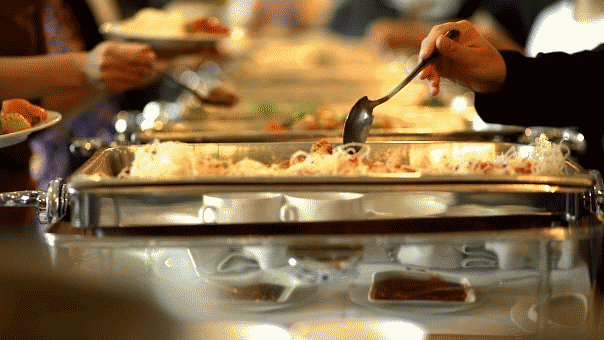Call me a fry daddy—after all the deep-frying I've been doing lately, I certainly feel like one. First, Senior Editor Matt Duckor and I created the ultimate crispy chicken sandwich. I followed that up with three weeks of developing the perfect apple cider doughnut.
So at this very moment, I'm very aware of the pitfalls of deep-frying (scary oil, the splattery mess, the fish shack smell). But I also know now that frying is not as intimidating as it looks, and can result in some seriously delicious food—especially if you keep a few key points in mind.
1. Grab the right tools.
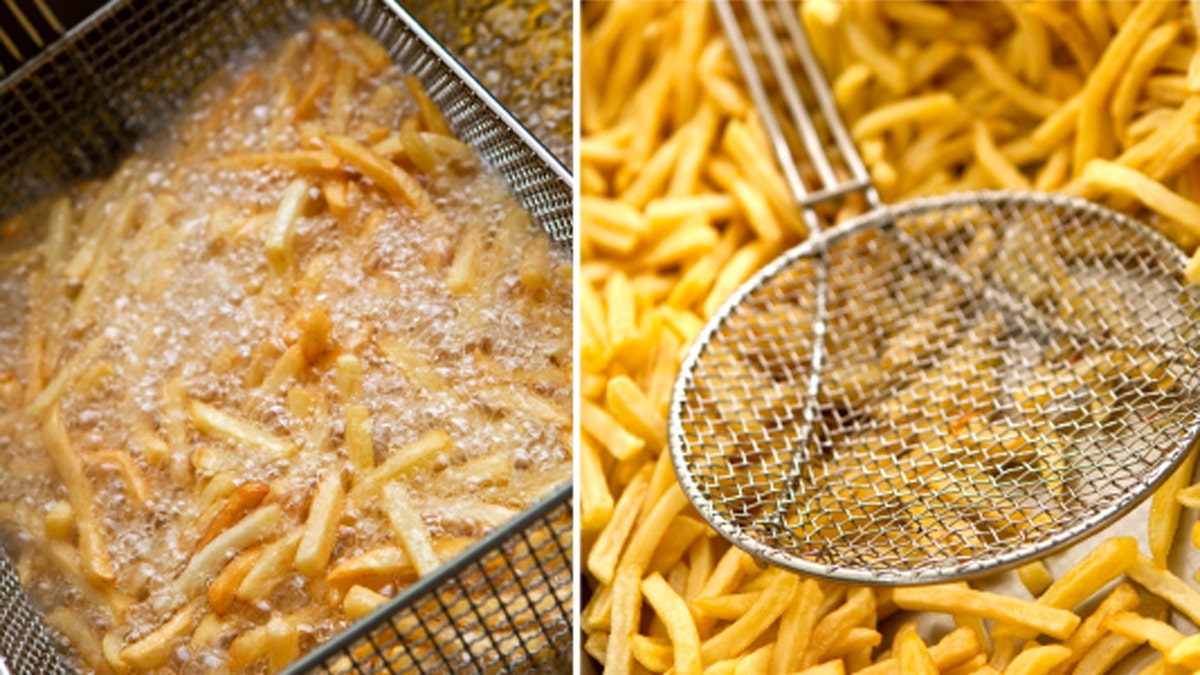
French fries on a collage (iStock)
The first step to any cooking project is gathering the tools, and with deep-frying there are a few items that are non-negotiable: a thermometer, a drying rack and paper towels, a bamboo skimmer, and a heavy-duty pot. Letting the doughnuts rest on a drying rack isn't enough; you also need paper towels to catch some of the excess oil. A bamboo skimmer is ideal for carefully lowering items into oil, moving the frying ingredients around easily, and shaking off excess oil when done. Using a thermometer that attaches to the side of the pot is also great, because you can keep a constant eye on the temperature of the oil.
2. Nail down the right temperature.
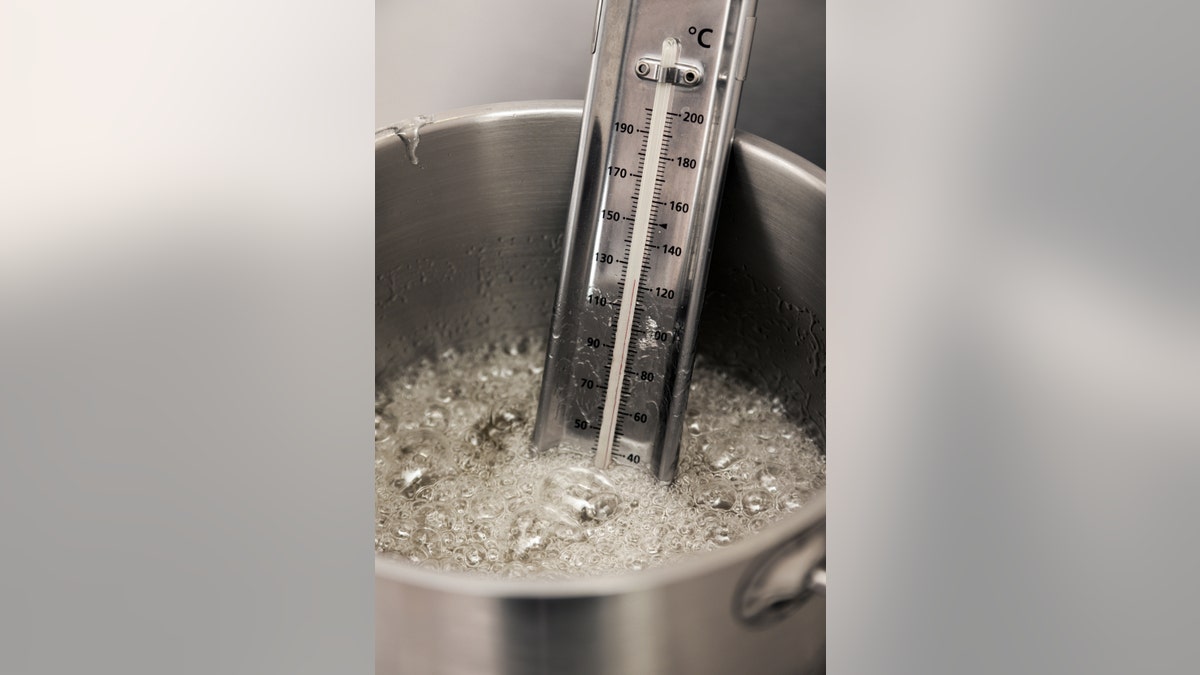
thermometer in a pot of boiling syrup (iStock)
A pastry chef once told me that 350°F was the ideal temperature to deep-fry anything, and it's a rule I've stuck to. But while testing my cake doughnuts, I realized that one temperature doesn't fit every recipe. At 350°F, the doughnuts absorbed a lot of oil, making them greasy; but at 375°F, they were perfect. Which just goes to show how important following the recipe's oil temperature is. A key to keeping it right? Get a good thermometer.
3. Don't overcrowd the fryer.
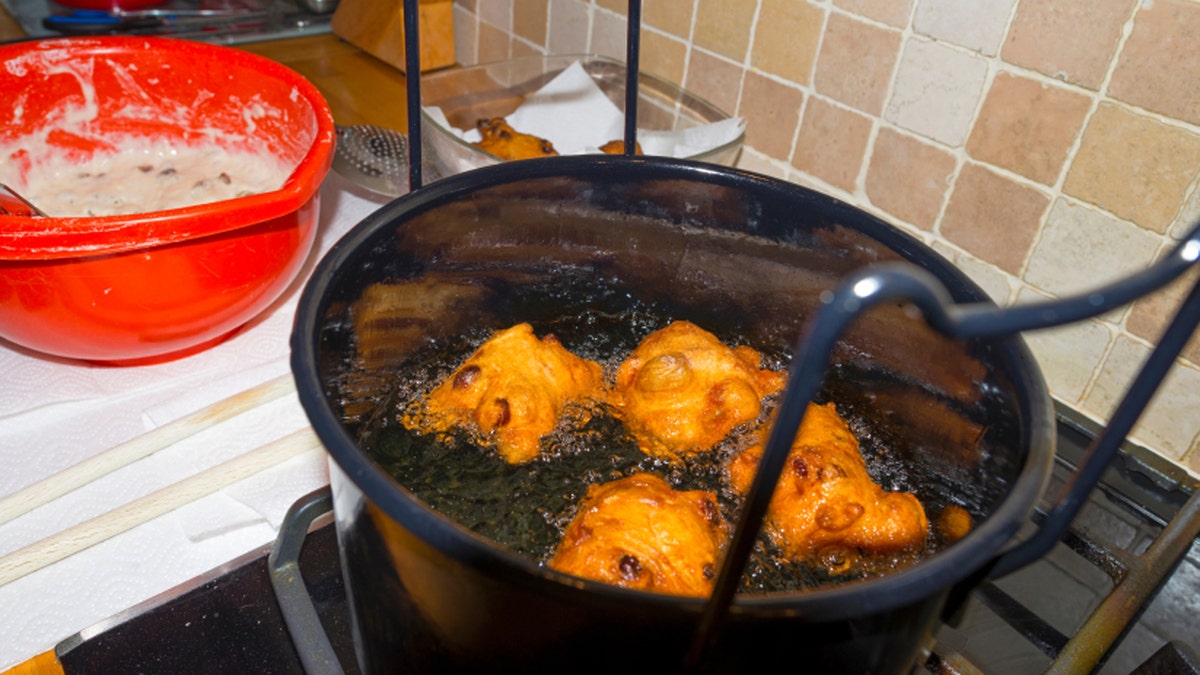
(iStock)
Whatever you are frying—doughnuts, chicken, tempura-battered vegetables—leave plenty of room to let them fry. Instead of tossing everything in at once (which can quickly lower the temperature of the oil), add the items in small batches, letting the oil bubble around one item before adding another.
4. Fry just until done (don't overdo it).
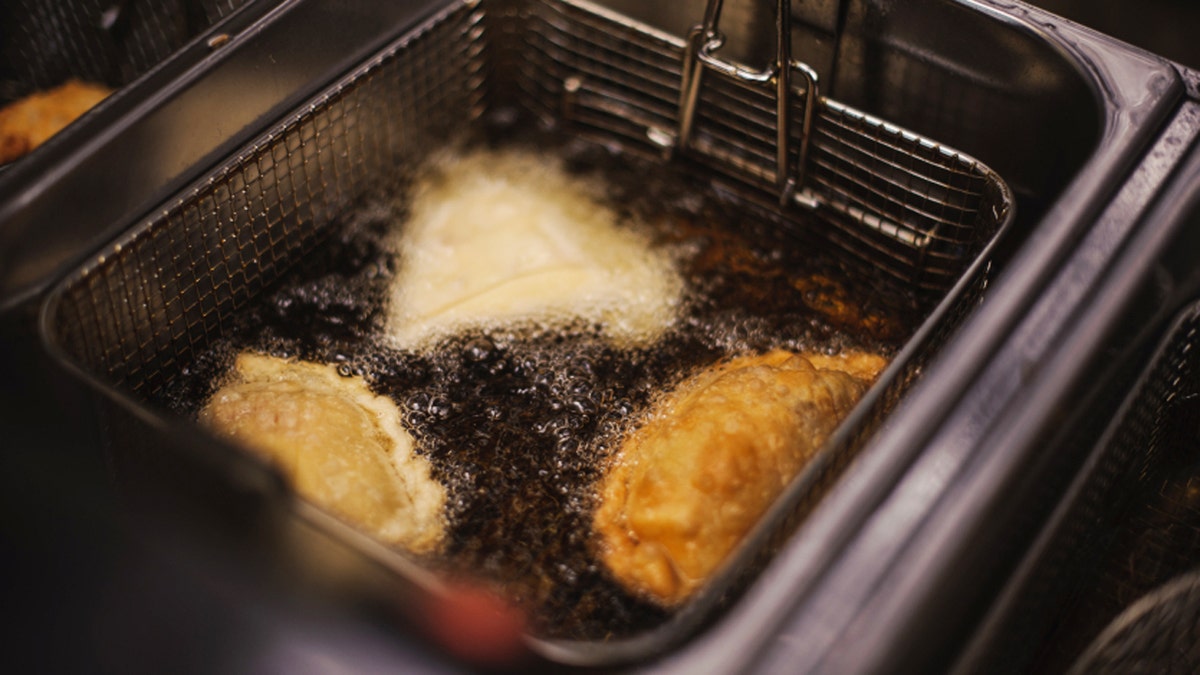
Dumplings being cocked in deep fryer, closeup (iStock)
Most recipes give a time range for frying, but keeping a constant eye on your frying ingredients is most important. Look for a nice golden brown color and signs of crispness (cracks will appear in the dough or breading), then flip and repeat. Note that the second side will cook faster, since the item has already begun heating in the hot oil.
Check out more deep frying must-know tips.
More from Epicurious
The Epic Hack to Peeling a Dozen Eggs in 104 Seconds
The Crazy Secret Ingredient That Makes Steak More Tender
















